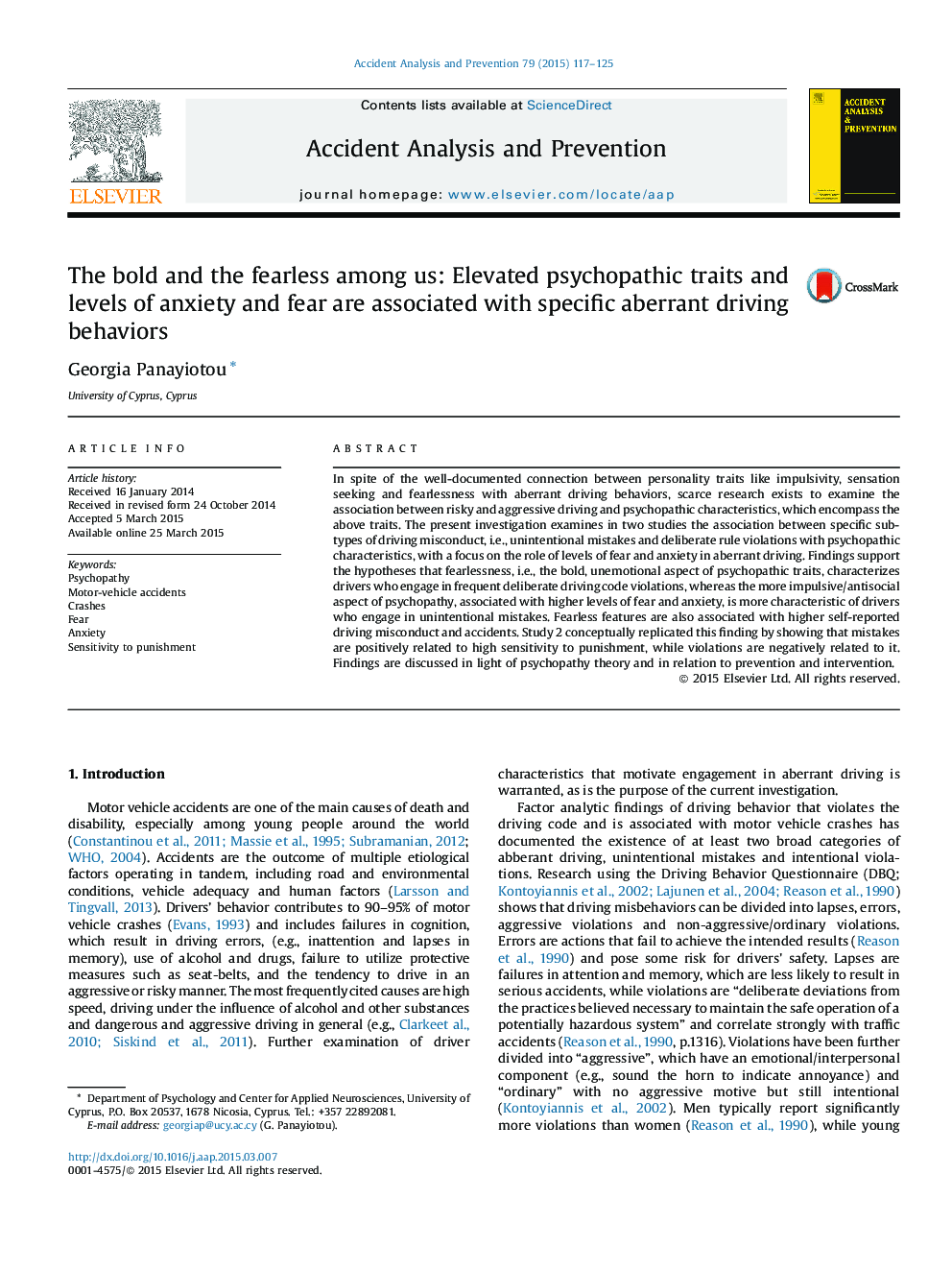| کد مقاله | کد نشریه | سال انتشار | مقاله انگلیسی | نسخه تمام متن |
|---|---|---|---|---|
| 572170 | 1452918 | 2015 | 9 صفحه PDF | دانلود رایگان |
• Personality is a significant predictor of driving behavior.
• Psychopathic traits were found to predict driving in 2 studies.
• Fearlessness was specifically related to driving violations.
• High fear, sensitivity to punishment and anxiety were related to mistakes.
• The role of fearlessness in driving behavior should be considered in interventions.
In spite of the well-documented connection between personality traits like impulsivity, sensation seeking and fearlessness with aberrant driving behaviors, scarce research exists to examine the association between risky and aggressive driving and psychopathic characteristics, which encompass the above traits. The present investigation examines in two studies the association between specific sub-types of driving misconduct, i.e., unintentional mistakes and deliberate rule violations with psychopathic characteristics, with a focus on the role of levels of fear and anxiety in aberrant driving. Findings support the hypotheses that fearlessness, i.e., the bold, unemotional aspect of psychopathic traits, characterizes drivers who engage in frequent deliberate driving code violations, whereas the more impulsive/antisocial aspect of psychopathy, associated with higher levels of fear and anxiety, is more characteristic of drivers who engage in unintentional mistakes. Fearless features are also associated with higher self-reported driving misconduct and accidents. Study 2 conceptually replicated this finding by showing that mistakes are positively related to high sensitivity to punishment, while violations are negatively related to it. Findings are discussed in light of psychopathy theory and in relation to prevention and intervention.
Journal: Accident Analysis & Prevention - Volume 79, June 2015, Pages 117–125
